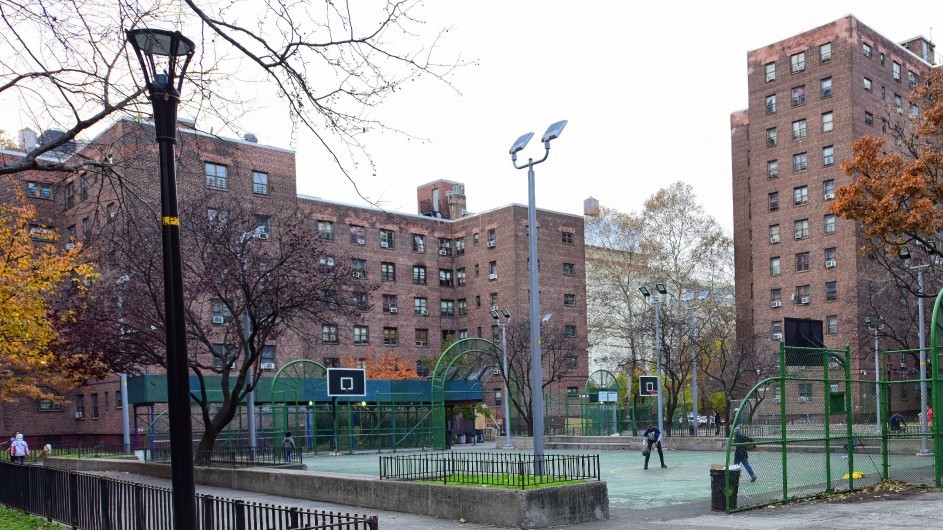Enact Fundamental Change to Address Poverty
The COVID pandemic exacerbated poverty in the United States, and the Biden administration should take significant steps to support those in need.

President Biden's administration has a long to-do list for its first 100 days. Columbia News asked faculty members from across the University to identify the most pressing issues facing the country and offer possible solutions.
The Biden administration is rightly focused on the COVID crisis in its first 100 days. COVID is first and foremost a public health crisis, and the administration needs to continue its focus on blunting the health and mortality impacts of the virus. But the COVID crisis is also an economic crisis. Countless Americans have lost their jobs and their livelihoods, or seen their pay greatly reduced. As our research at the Center on Poverty and Social Policy has shown, the income supports put in place in response—such as the CARES Act—have been critical. But their time-limited and temporary nature underscores the need for longer-term measures to reduce poverty and economic insecurity.
The new administration is now pursuing a broad agenda to help Americans cope with both the health and economic repercussions of the crisis, through its American Rescue Plan (ARP). Much of this support, if passed, will be time limited. While critical, the goal cannot just be to get through the moment and return to the status quo. The administration should enact fundamental changes to how the government responds to poverty and economic insecurity. Poverty and economic insecurity were widespread before the crisis, and longer-term solutions to both are necessary.
Here are two longer-term solutions the Biden administration should pursue aggressively, in its first 100 days and beyond.:
1. Establish a floor of income support for children.
The United States lacks a guaranteed income support for children. Right now, children suffer the consequences of inadequate income when their parents lose their job, have their hours cut, or are not able to work. The Child Tax Credit is the largest government income support policy geared toward families with children, but approximately one-third of children—primarily the poorest—do not receive the full benefit from the program, and are thus “left behind” their more affluent peers. Extending the full Child Tax Credit to all families at the bottom of the income distribution, increasing the value of the benefit, and making this reform permanent could reduce child poverty by nearly half. A temporary version of this Child Tax Credit expansion is included in Biden’s ARP, but this will need to be a permanent change if we want to provide meaningful economic security to children and their families.
BIDEN'S FIRST 100 DAYS
2. Confront America’s ongoing housing affordability crisis.
Even before the COVID crisis, far too many Americans were struggling to pay for housing, a financial burden that has taken off in recent decades. COVID has only exacerbated these problems, with many more families struggling to stay current on their rent payments. Federal and state eviction moratoria have prevented a full-blown housing crisis, but more needs to be done. The United States maintains only a patchwork of assistance to help struggling Americans pay for housing, and families in need can wait years on waitlists to receive help. Candidate Biden put forward a bold plan to increase housing support by making rental assistance vouchers available to all those who are eligible, rather than just a select few. Our work at the Center on Poverty and Social Policy shows that this reform could reduce poverty in America by nearly a quarter, and reduce child poverty by more than a third. Providing overburdened renters with assistance through the tax code, in the form of a Renter’s Credit, could also help bolster the affordability of housing for many cash-strapped Americans, and correct imbalances in the tax code that favor subsidizing home owners at the expense of renters.
The Biden administration is off to a strong start when it comes to addressing poverty and inequality. The ongoing COVID crisis provides a strong rationale for addressing the struggles of Americans at the bottom of the economic ladder. But the goal cannot be simply to meet the temporary need and then return to the status quo. Stronger and more fundamental reforms, like those described above, could set the country on a path to truly promote the economic security of all of its residents.

Christopher Wimer is co-director of the Center on Poverty and Social Policy at the Columbia University School of Social Work. He is also the Project Director on the Robin Hood Poverty Tracker, which measures poverty in New York City.
This column is editorially independent of Columbia News.